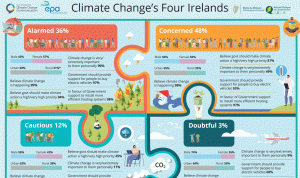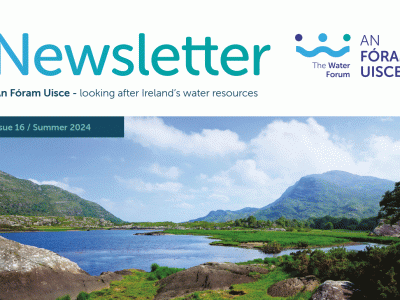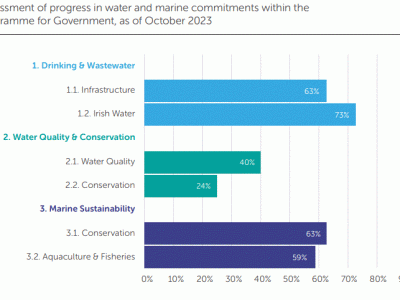From May to July 2021, the Irish Environmental Protection Agency (EPA), in partnership with the Yale Program on Climate Change Communication (YPCCC) and the survey firm Behaviour & Attitudes, conducted a nationally representative survey of climate change knowledge, attitudes, policy support, and behaviour among the Irish public.
The initial report generated by this survey, Climate Change in the Irish Mind, examined the responses of the Irish public as a whole. This most recent report takes the analysis a step further by identifying four distinct audiences based on views about climate change among the Irish public and examining the differences and similarities among them.
The segmentation analysis of the Climate Change in the Irish Mind survey data presented in this report outlines four distinct Irish climate change audiences. These audiences have been termed: the
- Alarmed (36% of the Irish adult population, approximately 1.3 million people), the
- Concerned (48% of the Irish adult population, approximately 1.7 million people), the
- Cautious (12% of the Irish adult population, approximately 400 thousand people), the
- Doubtful (3% of the Irish adult population, approximately 100 thousand people).
Large differences in climate change beliefs, worry and knowledge form the spectrum starting with the Alarmed, who strongly believe that climate change due to human activity is a real and immediate threat. The Concerned are convinced that climate change is a serious issue, but when compared to the Alarmed are less worried about it and view it as a less immediate threat. The Cautious do believe climate change is happening but are less sure of the causes and are less likely to think it will personally affect them. The Doubtful are overwhelmingly not worried, and don’t perceive climate change as a threat.
Over 70% of those asked believed that taking action to reduce climate change would improve or at least not change people’s quality of life and that climate change actions would have no detrimental effect on economic growth or jobs. The vast majority of those asked felt the Government should be doing more to address climate change.
Yet respondents stated that, as individuals, they were less willing to join a campaign or take action to reduce climate change and that this unwillingness would be lessened if requested by a peer or friend. Respondents overwhelmingly stated that they would be more likely to buy goods and services of companies that have taken steps to reduce climate change and that they would not support companies who are causing climate impacts.
The research concludes that to successfully address the challenges posed by climate change a diversity of messages, messengers, and methods, each tailored to meet the needs of the different target audiences will be required.
Further information is available at:
*Climate Change’s Four Irelands: An Audience Segmentation Analysis (epa.ie)




